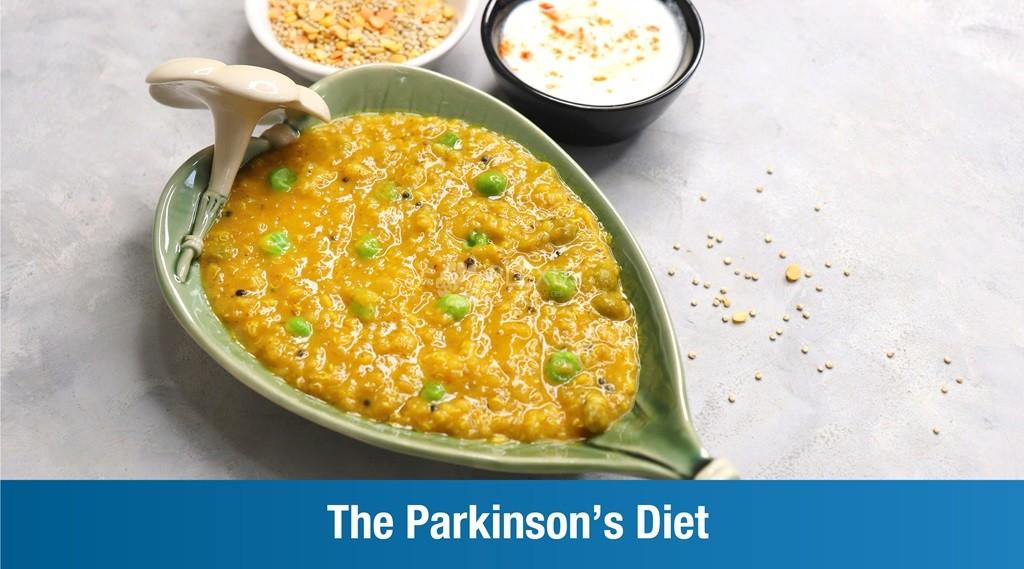
Parkinson’s disease is a progressive, chronic, and degenerative brain disorder that impairs muscle control, balance, and movement. It results in the deterioration of the cells in the substantia nigra (in the basal ganglia). It inhibits the brain’s ability to produce dopamine, the happy hormone. As the disease progresses, the neurons in the brain completely deteriorate. This leads to severe motor impairment, tremor, stiffness, slowed or delayed movement, dysphagia, sleep issues, fatigue, difficulty in speech, etc.
Research suggests that diet plays a critical role in managing Parkinson’s symptoms and even slowing disease progression. This blog focuses on the best dietary approaches for Parkinson’s disease, highlighting the impact of nutrition on symptom management and overall well-being.
Symptoms of Parkinson’s
Parkinson’s patients may experience any or a combination of the below symptoms:
- Tremor
- Slurred speech
- Poor coordination and balance
- Shaky fingers, hands, or lips
- Numbness or weakness in the limbs
- Spastic limb movements
- Difficulty in standing up after sitting for a long duration and vice versa
- Loss of muscle control in first one side of the body and then the other
- Loss of control over movements like blinking or smiling
- Loss of bladder and bowel control
- Depression and anxiety
- Drooling
- Hypomimia or masked face
- Micrographia or small handwriting
- Dizzy spells
- Stooped posture
- Dragging of feet
- Slowing of movement (bradykinesia)
- Dysphagia
- Hypophonia or unusually soft voice
- Dyskinesia or involuntary movement such as jerks, twitches, and twisting movements that are uncontrollable
Causes of Parkinson’s
Research indicates Parkinson’s may be caused by genetic predisposition or exposure to certain toxic chemicals. It can be a result of faulty genes in the extended family. In fact, studies have shown adults as young as 20 years diagnosed with Parkinson’s may very likely have a sibling with the same condition.
Although not conclusively proved, the impact of herbicides and pesticides in agriculture, air pollution and other contaminants on the risk of Parkinson’s is still debatable.
Diet and Parkinson’s: Important Considerations
When crafting a diet plan for Parkinson’s, several factors should be taken into account. These include:
- Managing motor symptoms
- Promoting gastrointestinal health
- Supporting cognitive function
- Maintaining a healthy weight
Parkinson’s patients may have specific dietary needs due to side-effects from medication and/or comorbidities.
So, what is the best diet for Parkinson’s?
Simply put, nutrient-rich foods that provide essential vitamins, minerals, and antioxidants are the best for Parkinson’s. Whole grains, fresh fruits and vegetables, healthy fats, and lean proteins, should be a part of every meal. These foods provide nourishment for the body, as well as support brain function and reduce inflammation, thereby, slowing down disease progression.
A good diet for Parkinson’s ensures optimal nutrition and symptom management. Blood sugar levels can remain stable by properly balancing macronutrients such as carbohydrates, proteins, and fats. This can provide sustained energy throughout the day. It is also recommended to incorporate a variety of foods from different food groups to ensure a diverse nutrient intake that supports overall physical health and mental well-being.
Parkinson’s Disease and Nutrition
As a part of Plexus’ rehabilitation program for Parkinson’s, we offer nutritive therapies that include several dietary strategies to manage Parkinson’s symptoms and improve quality of life. These strategies involve:
High-Fibre Diet
Whole grains, fresh fruits, vegetables, and legumes can help alleviate constipation, one of the most common symptoms of Parkinson’s.
Anti-Inflammatory Diet
Foods such as fatty fish, nuts, seeds, olive oil, and leafy greens have been known to reduce inflammation, thereby slowing down disease progression.
Nutritional Supplements
Research suggests nutritional supplements such as vitamin B12, vitamin D, coenzyme Q10, and omega-3 fatty acids can be beneficial for Parkinson’s patients..
Vegan Diet
Our dietary strategies are tailored to suit certain lifestyle choices, such as veganism too. Plant-based diets can also be rich in antioxidants and phytonutrients, which support overall health and reduce inflammation, thereby slowing disease progression.
Practical Tips
Eating healthy every day can be challenging. So, here are some practical tips from our nutritionists and dietary experts that can help you maintain a nutritious diet:
- Plan meals ahead of time to ensure a balanced and nutritious diet.
You could do meal preps (batch cooking and freezing meals) for easy access during days when cooking feels challenging.
- Drink plenty of water throughout the day.
Dehydration is known to worsen symptoms such as fatigue and constipation.
- Practice mindful eating by paying attention to hunger. Stop when you’re full.
- Eat slowly and savour each bite. This enhances digestion
- Reduce mealtime distractions.
Note: There are some Parkinson’s medications that may interact with certain foods or nutrients. Consult your doctor to understand and keep in mind the best timing for medication administration in relation to meals.
By implementing practical tips for meal planning and mindful eating, consuming nutrient-dense foods, and even sticking to an anti-inflammatory, vegan diet, or other dietary strategies, Parkinson’s patients can most definitely optimize their nutritional intake. At our centres in Bangalore and Hyderabad, we offer customized regenerative rehabilitation for Parkinson’s that includes stem cell therapy, physical therapy, occupational therapy, nutritive therapy, and much much more.
If you wish to enquire about our Parkinson’s rehabilitation program, please reach out to us today.
WhatsApp +91 89048 42087
Call +91 78159 64668 (Hyderabad) | +91 82299 99888 (Bangalore)
FAQs
What diet is best for Parkinson’s disease?
A balanced diet rich in fruits, vegetables, whole grains, lean proteins, and healthy fats is considered beneficial for Parkinson’s disease. With the right intake of anti-inflammatory foods and antioxidants, a balanced diet can support brain health and even slow disease progression.
What food should individuals with Parkinson’s avoid?
Parkinson’s patients should avoid processed foods that are high in saturated fats, refined sugars, and sodium. Even limiting consumption of red meat can prove to be beneficial, as they can aggravate inflammation and oxidative stress.
What worsens Parkinson’s disease?
Stress, lack of sleep, poor nutrition, and sedentary lifestyle are the biggest contributors to Parkinson’s and worsening of its symptoms.
What vitamin stopped shaking in Parkinson’s?
Studies have shown that vitamins B6 and B12 may help alleviate tremors in some individuals with Parkinson’s. However, there is very limited research to support this claim. Please consult your doctor before beginning any additional supplementation.
What is the latest cure for Parkinson’s disease?
At Plexus, our rehabilitation program focuses on symptom management and improving quality of life through a variety of therapeutic interventions, including stem cell therapy, physiotherapy, occupational therapy, swallowing management, gait training, nutritive therapy, and more. Moreover, adequate sleep, exercise, stress management, and balanced meals can go a long way in slowing down disease progression.











